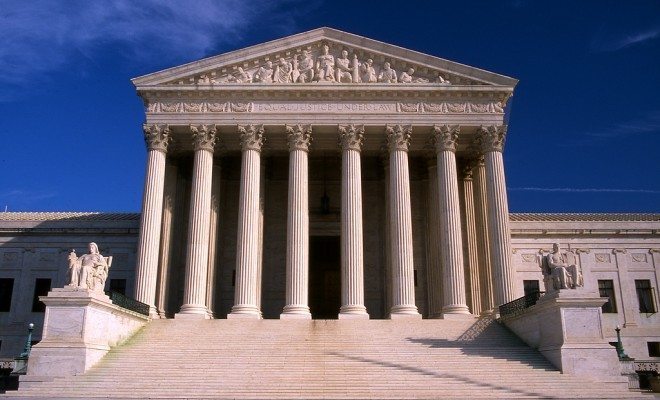 Image courtesy of [Jeff Kubina via Flickr]
Image courtesy of [Jeff Kubina via Flickr]
News
SCOTUS Undoes “Life Without Parole” Sentences For Juveniles
The prison system is meant to deter crime, provide public safety, and rehabilitate criminals. But today, the Supreme Court told us that too often that last aim is ignored in the case of juvenile offenders. The court ruled 6-3 to allow prisoners convicted of a crime they committed while they were juveniles to have their life without parole sentences reconsidered.
In a 2012 ruling, Miller v. Alabama, the Supreme Court barred “life without parole” sentencing for juveniles, but only for future convictions, affecting none of the currently imprisoned people, for the sake of preserving the “finality of conviction.”Today in Montgomery vs. Louisiana, the court had the rare effect of retroactively altering the sentences of inmates. The case, centered around Henry Montgomery, a man who shot and killed a deputy sheriff at the age of 17. Montgomery is now 69, and for his entire adult life has known nothing but the prison system.
#SCOTUS holds Miller’s prohibition on mandatory life w/out parole for juvenile offenders IS retroactive in cases of state collateral review
— SCOTUSblog (@SCOTUSblog) January 25, 2016
Some states individually chose to adjust the sentences of convicted juveniles following the Supreme Court’s 2012 ruling. This means that the new retroactive ruling only affects the sentences of about 1,000 inmates out of the 2,341 people convicted as juveniles facing life sentences, according to a study by The Phillips Black Project. More than half of that population had already been allowed to seek reconsideration of their sentences, as long as they can prove that their “crimes reflected their transient immaturity.”
The entire course of this argument hinges on whether a life sentence should only apply to an incorrigible person–that is, one with no hope of rehabilitation–and whether a juvenile is capable of being incorrigible at a young age. Justice Kennedy wrote in his opinion that “prisoners like Montgomery must be given the opportunity to show their crime did not reflect irreparable corruption; and, if it did not, their hope for some years of life outside prison walls must be restored.” This ruling adds on to the ban on “life without parole” sentencing for juveniles unless the prosecutor can prove that the specific individual is beyond saving. While standards of incorrigibility vary by state, they typically focus on the accused showing repeated examples of behavior and no response to reprimands from authority.








Comments